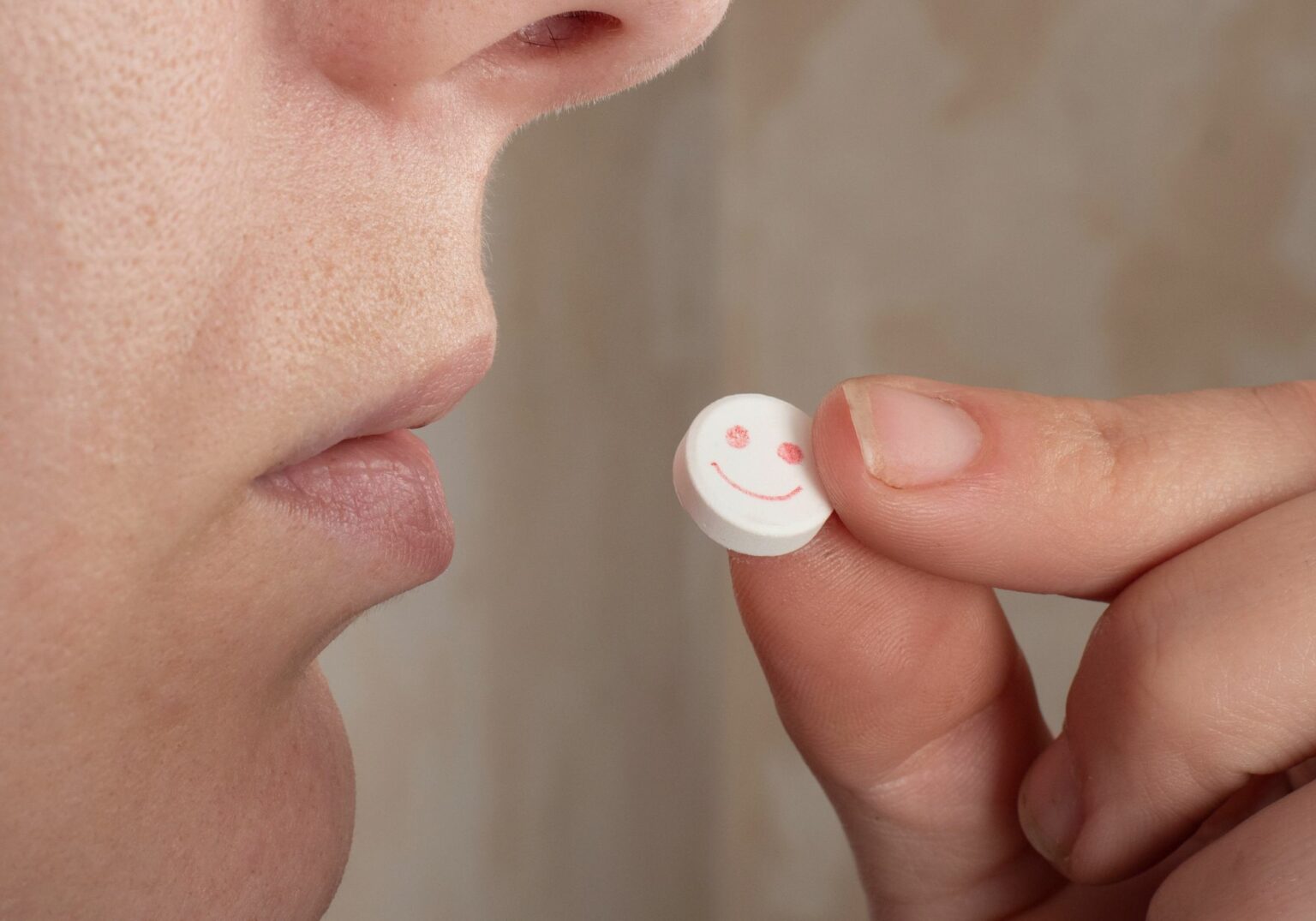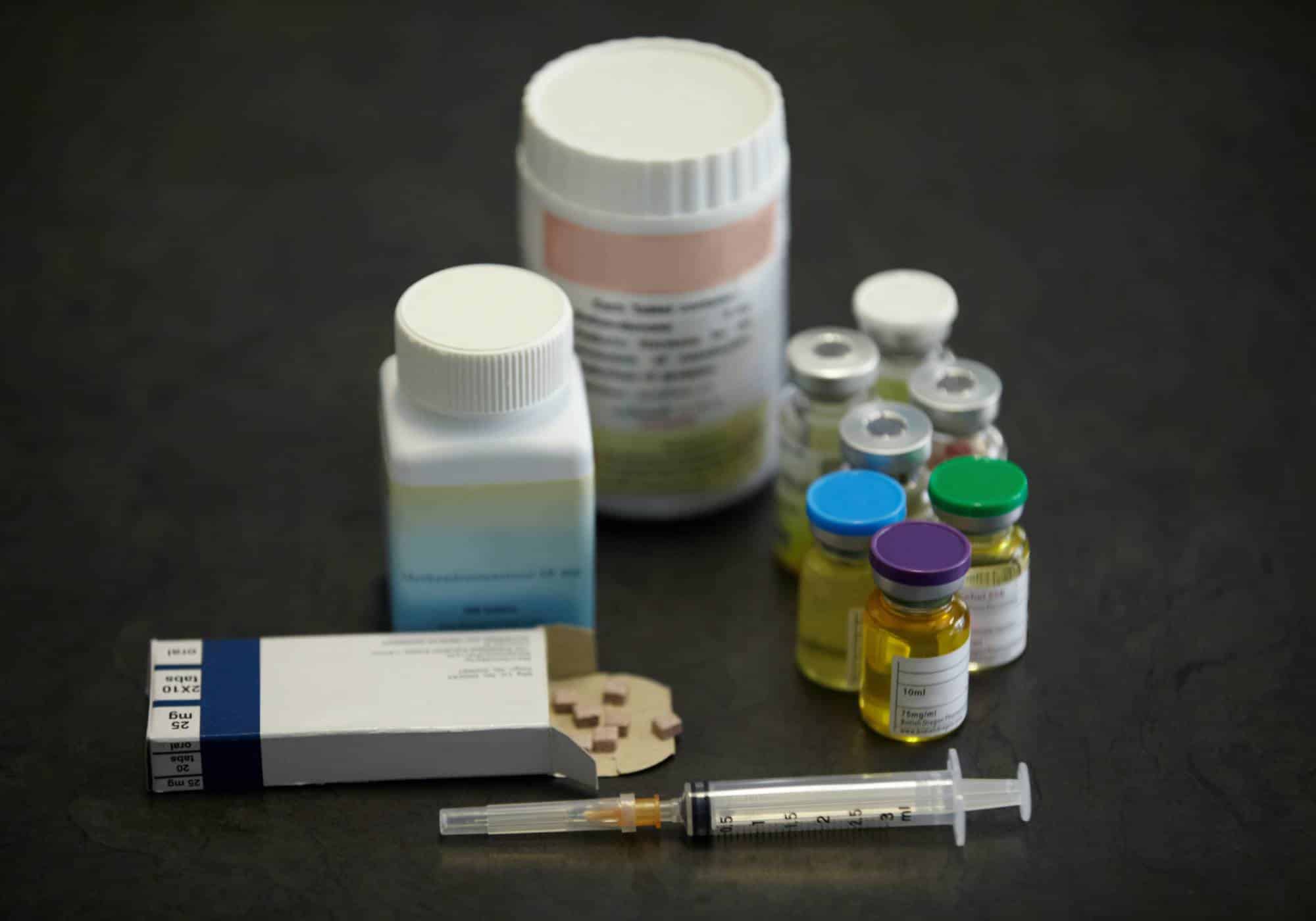What Is MDMA Withdrawal?
Ecstasy, or MDMA, is a synthetic drug that’s known for its euphoric effects, yet it’s highly psychologically addictive. Users who are addicted and then stop taking ecstasy undergo withdrawal because their brains have become reliant on the drug for certain feelings.
Ecstasy works by enhancing neurotransmitters in the brain linked to happiness and love, leading to the drug’s euphoric and positive emotional effects. However, this heightened activity depletes essential brain chemicals over time.
Prolonged ecstasy use can lead to the brain’s dependence on the drug for these emotions. When a user quits, they face withdrawal as their brain adjusts to functioning without ecstasy. This often involves experiencing negative emotions like depression and anxiety, which are contrary to the high ecstasy provides, along with strong cravings for the drug.
MDMA Withdrawal symptoms are mainly psychological, although some physical symptoms may occur. The extent and duration of ecstasy withdrawal vary based on factors like the user’s tolerance, frequency and length of drug use, metabolism, overall health, age, gender, and genetic factors. Users with multiple addictions or co-occurring mental health disorders might face more complex and intense withdrawal challenges.
Ecstasy Withdrawal Symptoms
Ecstasy typically has effects lasting 3-6 hours, leading some users to consume additional doses as effects wane or indulge in binge usage. After about a week of such patterns, individuals often encounter symptoms like irritability, impulsivity, sleep issues, anxiety, concentration difficulties, and reduced sexual interest. When ecstasy use ceases, especially among frequent users, a range of withdrawal symptoms may emerge, including:
- Fatigue and depression
- Challenges with concentration
- Decreased appetite
- Sleep disturbances
- Increased anxiety and irritability
- Feelings of confusion
- Intense drug cravings
- Agitation and paranoia
- Insomnia
- Memory issues
- Altered self-perception
Given ecstasy’s often unknown composition and common combination with substances like heroin, ketamine, amphetamines, marijuana, cocaine, or LSD, withdrawal symptoms can vary significantly among individuals.
While physical symptoms of ecstasy withdrawal are usually not dangerous, the psychological aspects can be intense, leading to a high risk of relapse. This is particularly risky during withdrawal as decreased tolerance can increase the danger of overdose, potentially leading to fatal consequences.
Handling the MDMA withdrawal symptoms, especially severe depression, can be daunting and is best managed in a medical detox facility or inpatient rehab. The duration and intensity of withdrawal vary for each individual, typically peaking a few days after cessation and lasting about a week. However, profound psychological symptoms like depression and cravings can linger for weeks or even months, underscoring the need for professional support during recovery. If you or your loved one are struggling with ecstasy withdrawal or addiction, call Hope Harbor Wellness today to begin your ecstasy addiction treatment in Atlanta, GA today.

MDMA Withdrawal Timeline
The experience of withdrawing from MDMA varies for each individual, influenced by factors such as duration of drug use, metabolic rate, and overall health. Typically, people undergoing MDMA withdrawal may encounter these stages:
- First 12 Hours: In the initial 12 hours post-MDMA use, individuals often don’t feel significant withdrawal effects. The lingering aftereffects of the drug might still induce a sense of well-being during this detox phase.
- Day 1: Gradually, withdrawal symptoms start to surface. Common issues include difficulty concentrating and disrupted sleep patterns.
- Days 2 to 3: This period is often when symptoms intensify, peaking with heightened feelings of anxiety, depression, or paranoia. Physical discomfort, such as fatigue and appetite loss, may also be prominent.
- Days 4 to 7: Symptoms start to lessen gradually. However, complete recovery might take additional time, and cravings for MDMA could persist, potentially necessitating professional help, like a visit to a rehab center in Atlanta.
- Weeks 2 to 3: Although the worst of the withdrawal usually subsides by this point, some residual effects may linger. Prolonged MDMA users might continue experiencing focus and memory issues.
Each withdrawal journey is unique, with some individuals moving through these stages more quickly than others. For those with extended periods of MDMA use, professional support and rehabilitation can be crucial in managing withdrawal symptoms and paving the way for successful long-term recovery. If you or your loved one are struggling with MDMA withdrawal or addiction, call Hope Harbor Wellness today to begin your MDMA addiction treatment in Atlanta, GA today.
What Causes MDMA Withdrawal & Addiction?
MDMA, commonly known as ecstasy, stimulates three key neurotransmitters in the brain: serotonin, dopamine, and norepinephrine. Serotonin regulates mood, appetite, sleep, and sexual arousal. Dopamine is linked to energy, activity, and rewarding feelings, while norepinephrine affects physiological functions, including blood pressure and heart rate.
The addictive nature of MDMA remains a subject of debate. Like other addictive substances, ecstasy influences several neurotransmitters. Users often report signs typical of addiction, such as developing tolerance (needing more MDMA to achieve the same effect), physical dependence, withdrawal symptoms, and continued use despite negative consequences.
However, some research indicates that addiction to ecstasy might be less likely compared to other substances known for compulsive use. This is partly because the pleasurable effects of MDMA decrease, and negative effects increase with frequent use.
While compulsive ecstasy use does occur, it generally results in less severe addiction and withdrawal symptoms compared to substances like alcohol, opioids, cocaine, and methamphetamine. Moreover, MDMA withdrawal typically involves milder physical symptoms than those associated with withdrawals from many other drugs. This nuanced understanding of MDMA’s impact on the brain and its addiction potential is crucial for effective treatment and support strategies.
Factors That Effect Ecstasy Withdrawal
Ecstasy, known for its euphoric effects, is addictive due to its impact on brain chemicals related to well-being, trust, and closeness. Regular use disrupts normal brain function, leading to potential long-term brain issues. The National Institute on Drug Abuse (NIDA) suggests that ecstasy might also have physically addictive properties.
The most common symptoms of ecstasy withdrawal are psychological, like chronic anxiety and depression. These occur because the brain gets used to artificial stimulation for feelings of happiness and security. Physical symptoms like fatigue, sleep disturbances, and loss of appetite may also arise, especially after prolonged and severe abuse.
About 43% of regular ecstasy users show signs of dependence. The withdrawal experience varies per individual, influenced by factors such as:
- The level of dependence on ecstasy
- The frequency and duration of drug use
- Age at which drug use began
- Underlying mental health conditions or concurrent addictions
- Individual metabolism and overall physical health
These factors play a significant role in determining the intensity and duration of ecstasy withdrawal symptoms, highlighting the need for personalized approaches in treatment and recovery.
Understanding the Risks of Ecstasy Abuse and Withdrawal
Ecstasy abuse leads to a sudden decline in serotonin, dopamine, and norepinephrine, shocking the system. Dependence on the drug for the release of these vital chemicals can lead to significant health problems, particularly affecting heart rate and blood pressure regulation, and influencing emotional and impulse control.
As reported by the Drug Abuse Awareness Network (DAWN), emergency room visits for ecstasy-related complications exceed 250,000 annually. These incidents often involve physical issues like heatstroke and severe dehydration. A more severe concern arises with chronic ecstasy use, which depletes serotonin levels. When combined with prescription serotonin reuptake inhibitors (SSRIs), commonly used for depression, there’s an increased risk of developing severe serotonin syndrome.
This dangerous condition, highlighted in the International Journal of Adolescent Medicine and Health, can be life-threatening, especially since SSRIs are widely prescribed for depression.
Withdrawal symptoms from ecstasy can appear shortly after taking the drug or increasing the dosage. If someone using ecstasy and SSRIs exhibits any of these symptoms, immediate medical help is necessary:
- Muscle twitching or stiffness
- Rapid or irregular heartbeats
- Elevated blood pressure
- Excessive sweating, shivering, or goosebumps
- Diarrhea
- Confusion
- High fever
- Seizures
- Loss of consciousness
Recognizing these signs is crucial for timely and appropriate medical intervention, underscoring the importance of being vigilant about the hidden dangers of ecstasy abuse and withdrawal.
Is Ecstasy Withdrawal Painful?
Concerns about the discomfort of ecstasy detox are common, but it’s important to know that while ecstasy withdrawal isn’t typically painful, it can be challenging as your body readjusts to functioning without the drug. These changes might bring about some discomfort, but they should not deter you from pursuing recovery. At Hope Harbor Wellness, we work with top detox centers that prioritize making your detox experience as comfortable as possible. Our dedicated team is available to help you navigate through any apprehensions or concerns you might have during this process, ensuring you have the support you need every step of the way. Remember, embarking on detox is a courageous step towards a healthier, drug-free life.
Ecstasy Comedown Vs. Withdrawal
Research suggests that the so-called “comedown” from ecstasy may be distinct from the more defined patterns of dependence and withdrawal. The term “comedown” or “crash” refers to the immediate aftermath of using ecstasy, somewhat akin to a hangover experienced after heavy drinking. Usually occurring 1-3 days post-use, the comedown from ecstasy can manifest symptoms such as:
- A general sense of dissatisfaction with life.
- Feelings of depression.
- Lethargy or fatigue.
- Irritability.
- Anxiety and agitation.
- An unusual increase in appetite.
- Excessive sleepiness.
While these symptoms mirror those of ecstasy withdrawal, the primary difference lies in their onset. Withdrawal symptoms typically arise after stopping the drug following prolonged use, whereas comedown effects can occur even after just a single episode of ecstasy use. Understanding this distinction is crucial for recognizing the patterns of ecstasy use and effectively addressing its after-effects.

Treatment Options for MDMA Withdrawal
While there’s no immediate cure for MDMA withdrawal symptoms, the focus of treatment is providing support and care during this challenging period. If you’re experiencing severe anxiety or depression, consulting a mental health professional is advisable. The key aspects of withdrawal treatment include rest, maintaining a nutritious diet, staying hydrated, and allowing your body the time it needs to recover.
Once you’ve navigated the acute phase of withdrawal, it’s crucial to delve into the underlying reasons behind MDMA misuse. Hope Harbor Wellness offers a supportive and safe environment for this journey. Our rehab center in Atlanta provides encouragement and assistance as you walk the path to sobriety. To learn more about our MDMA addiction treatment program and how we can help, feel free to contact us at 678-929-6304.
MDMA Withdrawal Treatment at Hope Harbor Wellness
Located in the serene suburbs of Atlanta, Hope Harbor Wellness is your ally in the fight against MDMA addiction in Atlanta, GA. Our MDMA drug rehab centers, dedicated to holistic recovery, are ideally situated to offer you the support you need.
Our compassionate MDMA outpatient program collaborates with top-tier medical MDMA detox facilities, ensuring a safe and effective detox process. Once free from addictive substances, you can seamlessly transition into one of our specialized outpatient treatment programs at Hope Harbor Wellness, designed to address substance use disorders:
- Outpatient Rehab: A flexible program tailored to fit into your daily life.
- PHP (Partial Hospitalization Program): Offers a structured yet non-residential approach to treatment.
- IOP (Intensive Outpatient Program): Provides more intensive care while allowing you to maintain daily responsibilities.
- Dual Diagnosis Treatment Program: Caters to those with co-occurring mental health disorders.
Our MDMA treatment programs incorporate a variety of interventions:
- MAT (Medication-Assisted Treatment): Utilizes medications to ease withdrawal symptoms and cravings.
- Psychotherapy: Addresses underlying psychological aspects of addiction.
- Group Therapy: Offers peer support and shared learning experiences.
- Individual Counseling: Provides personalized guidance and support.
- Family Therapy: Helps heal and strengthen family relationships.
- Holistic Therapies: Focuses on overall well-being, including physical, emotional, and spiritual health.
- Aftercare: Ensures ongoing support post-treatment.
Embark on your journey from addiction to recovery with Hope Harbor Wellness. Trust in our dedicated team to guide you every step of the way. For more information or to start your journey, call our admissions team at 678-929-6304.












